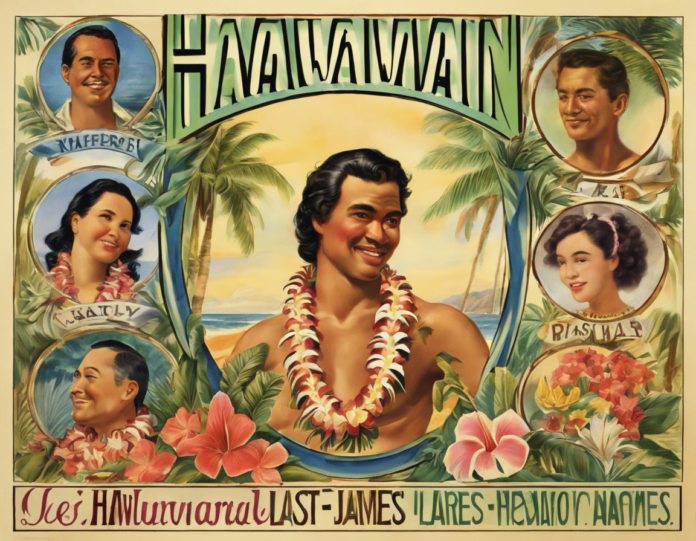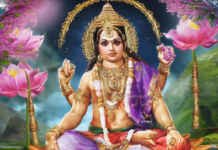Hawaii is a place of unique cultural diversity and richness, with a history that has been shaped by the traditions and customs of its indigenous people, as well as the waves of migration that have brought people from all corners of the globe to its shores. One fascinating aspect of Hawaiian culture that reflects this diversity is the tradition of Hawaiian last names, which carry with them the stories of the people who bear them.
In this article, we will delve into the world of Hawaiian last names, exploring their origins, meanings, and significance in the context of Hawaiian culture and society. We will uncover the diverse influences that have shaped Hawaiian surnames over the years, from the ancient Polynesians who first settled the islands to the European explorers and settlers who arrived in more recent centuries. By understanding the history and meaning behind these names, we can gain a deeper appreciation for the unique cultural legacy that they represent.
Origins of Hawaiian Last Names
Ancient Hawaiian Naming Traditions
In ancient Hawaiian society, naming played a significant role in defining one’s identity and connection to their family and ancestors. Hawaiian names were often inspired by elements of nature, such as sea creatures, plants, and celestial bodies, reflecting the deep spiritual connection that the Hawaiian people had with the natural world. Additionally, names were passed down through generations, linking individuals to their familial lineage and heritage.
Influence of Western Contact
With the arrival of Western explorers and missionaries in the late 18th and early 19th centuries, Hawaiian naming practices underwent significant changes. Foreign influences introduced new naming conventions, with many Hawaiians adopting Western-style surnames to conform to the customs of the newcomers. These surnames often reflected the languages and cultures of the settlers, resulting in a blending of Hawaiian and Western naming traditions.
Modern Influences
In modern Hawaii, last names continue to evolve as new generations embrace their multicultural heritage and identities. Intermarriage between people of different ethnic backgrounds has led to the creation of unique hybrid surnames that blend elements of various cultures. Additionally, many Hawaiians today are reclaiming their indigenous roots and reviving traditional naming practices, incorporating traditional Hawaiian words and meanings into their last names as a way to honor their heritage.
Common Themes in Hawaiian Last Names
Nature-Inspired Names
Many Hawaiian last names are derived from words that describe elements of the natural world, such as “Kai” (meaning “sea”), “Nalu” (meaning “wave”), and “Kahale” (meaning “house” or “home”). These names reflect the deep connection that the Hawaiian people have with their environment and the importance of nature in Hawaiian culture.
Family Lineage
Family lineage and ancestry are important aspects of Hawaiian identity, and many Hawaiian last names are indicative of one’s familial connections. Prefixes such as “Ka-“ (meaning “the”) and “Ke-“ (meaning “the”) are commonly used in Hawaiian surnames to denote ancestral lineage and heritage.
Cultural Significance
Hawaiian last names often carry deep cultural significance, serving as a reminder of the traditions, values, and beliefs that have been passed down through generations. Names such as “Kamehameha” (named after the famed Hawaiian king) and “Kalakaua” (named after another Hawaiian monarch) highlight the importance of Hawaiian history and royalty in shaping the cultural landscape of the islands.
FAQ
1. What is the significance of Hawaiian last names?
Hawaiian last names carry with them the stories of one’s ancestry, heritage, and cultural identity. They reflect the diverse influences that have shaped Hawaiian society over the centuries and serve as a link to the past for many Hawaiians.
2. How are Hawaiian last names traditionally passed down?
In traditional Hawaiian culture, last names are often passed down from generation to generation, linking individuals to their familial lineage and ancestors. Names can carry the legacy of prominent figures in Hawaiian history or be inspired by elements of the natural world.
3. Are there specific naming conventions for Hawaiian last names?
While there are no strict rules for Hawaiian last names, common themes include nature-inspired names, family lineage indicators, and cultural significance. Prefixes such as “Ka-“ and “Ke-“ are often used to denote ancestral connections.
4. How have Western influences impacted Hawaiian last names?
The arrival of Western explorers and settlers in Hawaii introduced new naming conventions, with many Hawaiians adopting Western-style surnames. This blending of Hawaiian and Western naming traditions has resulted in a diverse array of last names in modern Hawaii.
5. Can Hawaiian last names change over time?
Hawaiian last names, like all names, can evolve over time as families adapt to changing circumstances or seek to honor different aspects of their heritage. Some Hawaiians may choose to reclaim traditional Hawaiian names or create hybrid surnames that reflect their multicultural backgrounds.
In conclusion, Hawaiian last names are more than just labels; they are a reflection of the cultural tapestry that makes Hawaii a truly unique and vibrant place. By exploring the origins and themes of Hawaiian surnames, we gain insight into the complex history and heritage of the islands and the people who call them home. Through the stories embedded in these names, we can uncover the rich cultural legacy that continues to thrive in modern-day Hawaii.









